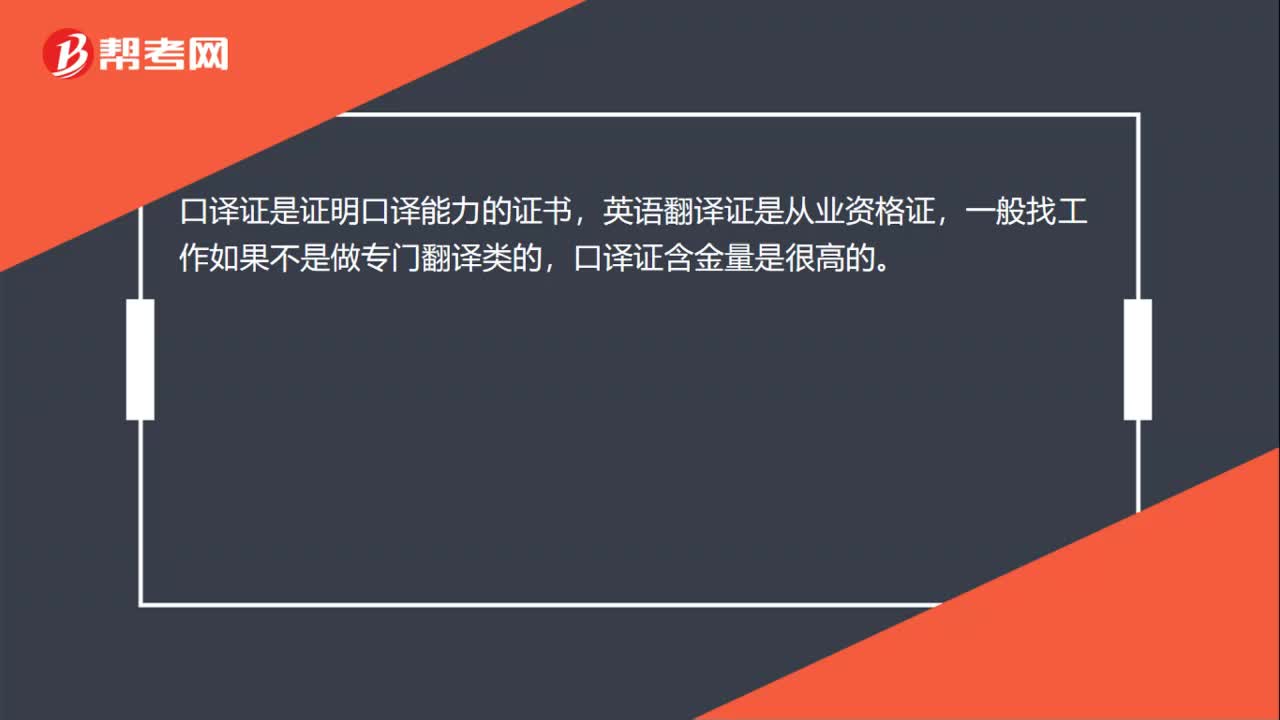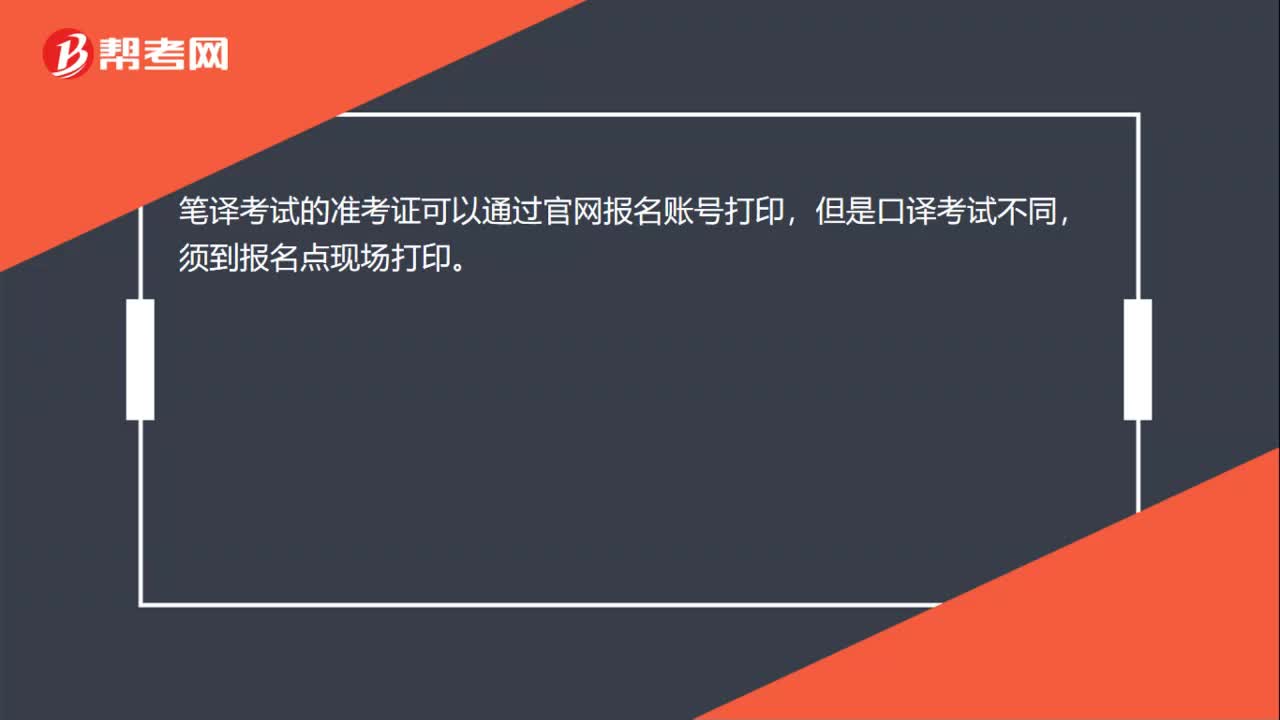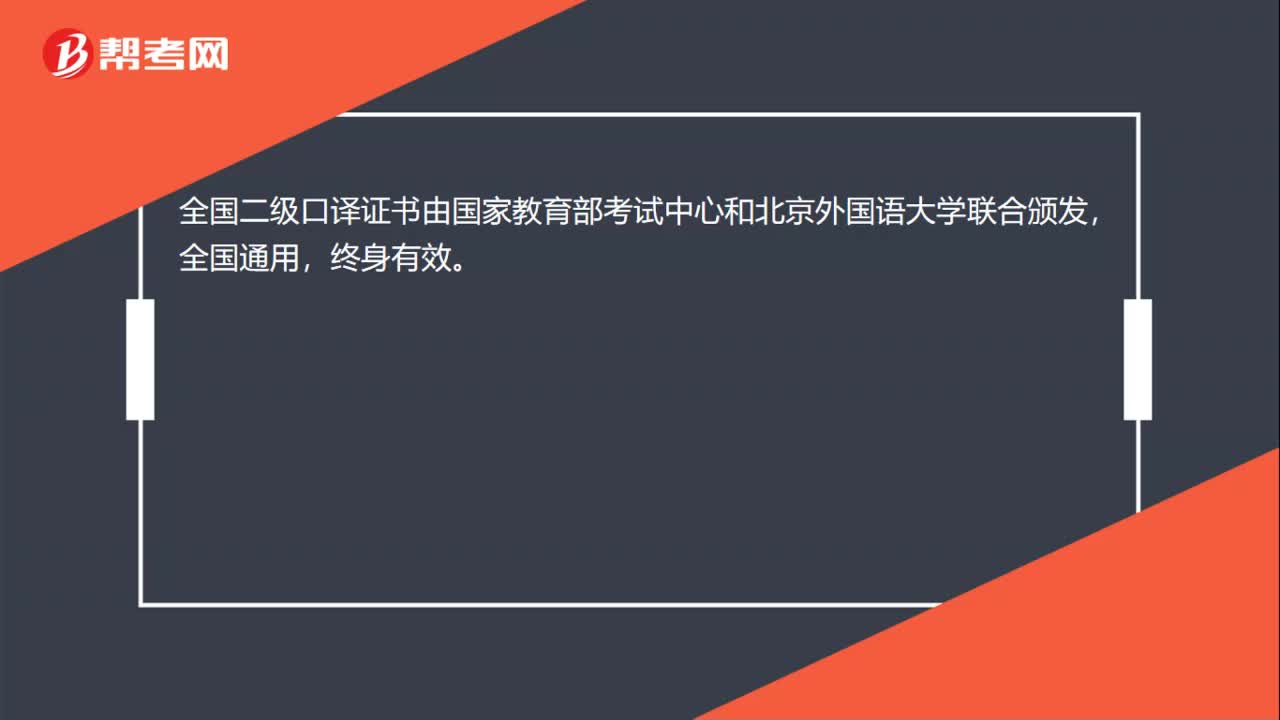
下载亿题库APP
联系电话:400-660-1360

下载亿题库APP
联系电话:400-660-1360

请谨慎保管和记忆你的密码,以免泄露和丢失

请谨慎保管和记忆你的密码,以免泄露和丢失

为了帮助广大考生顺利通过口译笔译考试,帮考网为大家分享了一些高级口译试题相关内容,希望大家每天坚持练习,积极备考。
Psychologists have many theories to explain how we remember information. The most influential theory is that memory works as a kind of storage system for information. There are three types of these storage systems with different functions that hold information for different amounts of time. They are sensory memory, short-term memory and long-term memory. Sensory memory holds information for the shortest amount of time, less than for seconds and instant. Sensory memory is where stimuli or things that stimulate our senses are very briefly stored. We forget sensory memories almost instantly, unless they passed into another storage system. Examples of the stimuli are what we see and hear in the world, such as a flash of lightning or the sound of a door closing. Short-term memory also called working memory, holds information for about 15 to 20 seconds. This is not a very long time. But the information that passes into this system has more meaning for us than just sensory stimulation. Some experts believe that sensory information changes into visual images as it is stored. And others believe that information changes into words. There is not much room for information in short-term memory. And it did not stay there for very long. Examples of this types of information are telephone numbers, addresses and names. Long-term memory holds information almost indefinitely, although retrieving it can sometimes be difficult. Think of long-term memory as a very big library, with almost unlimited capacities for storage. Information gets filed, cataloged and stored. Long-term memory has several different components or categories. The main two categories are declarative memory and procedure memory. Declarative memory is where we store factual information, such as names, faces, dates, life events. Procedure memory is where we store memory of skills and habits , like how to ride a bike, or how to boil an egg. Within the declarative memory, there are smaller categories of memory, episodic memory and semantic memory. Episodic memory relates to our personal lives. Things we have done or experienced, such as having a car accident or graduating from school. Semantic memory is where we organize general knowledge or facts about the world, such as math formulas, spelling rules and capital cities.
点评:这是一篇关于人类记忆分类的文章。文章采用了总分的形式,层次鲜明,结构清晰。文章开头两句为总括句,表明心理学家有许多种理论来解释人类如何记忆,其中最有影响力的一种理论是人类记忆的工作方式如同信息储存系统。人类的记忆被分为三种:瞬时记忆、短期记忆和长期记忆。接下来分别针对三种记忆的具体情况:从信息储存的内容、功能和时间的长短三个角度进行了介绍。需要注意的是,最后几句是分论点,阐明长期记忆分为情景记忆(eopisodic memory)和语义记忆(sematic memory)两类。 相信考生平时对科普知识稍有积累,再加上对结构的把握,本篇文章能够轻松应对。
看到这里小伙伴们是否有所收获呢?希望帮考网为大家分享的内容能给大家带来帮助,后续也可以多关注帮考网,这里有更多的考试资讯,你想知道的都在这!
 23
23中级口译的笔译证书有效期是多久?:中级口译的笔译证书有效期是多久?通过笔试考试后,2年内有4次口试机会。只有在规定时间内通过了笔试和口试成绩才能拿到相应的证书,否则笔试成绩就自动无效。一旦拿到证书,就是终身有效的。
 27
27三级笔译和口译考试每年可以考几次?:三级笔译和口译考试每年可以考几次?通常情况下笔译口译考试都是每年两次。上半年一般在1月份报名,5月份考试,下半年一般在7月份报名,11月考试,各省市情况不一,具体情况可上CATTI官网或各省市人事考试网查询。
 17
17口译证的含金量高吗?:口译证的含金量高吗?口译证是证明口译能力的证书,英语翻译证是从业资格证,一般找工作如果不是做专门翻译类的,口译证含金量是很高的。
 00:23
00:232020-06-03
 00:15
00:152020-06-03
 00:27
00:272020-06-03
 00:17
00:172020-06-03
 00:17
00:172020-06-03

微信扫码关注公众号
获取更多考试热门资料